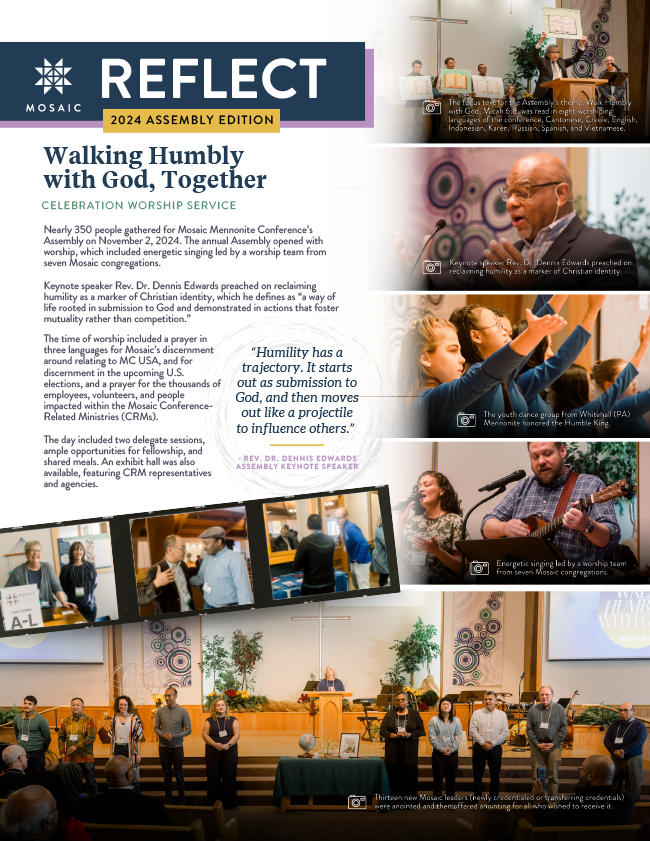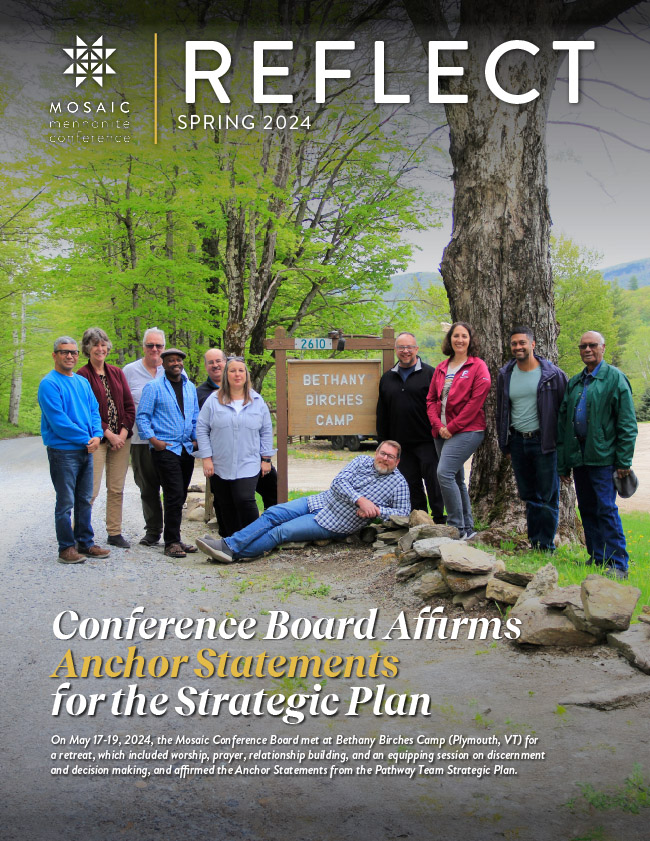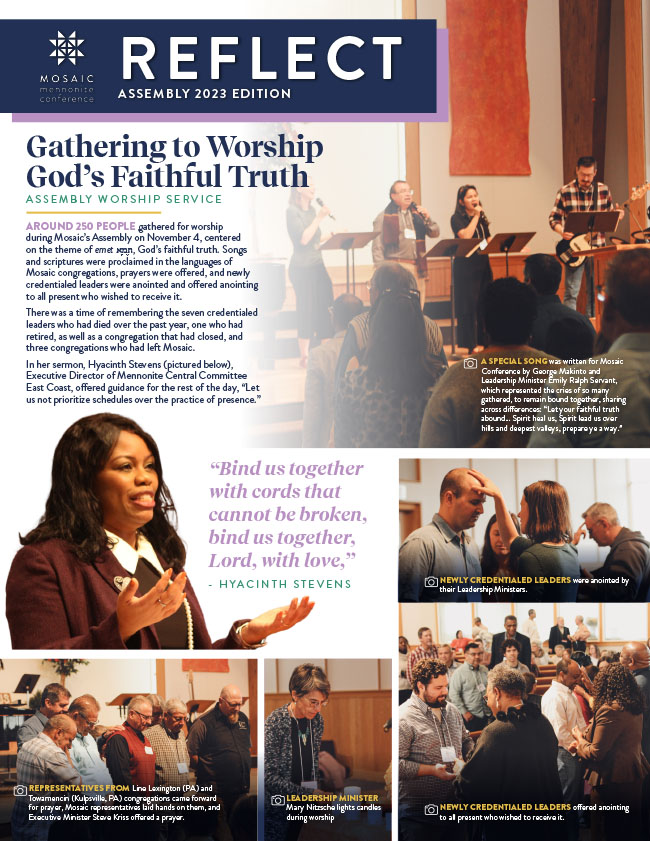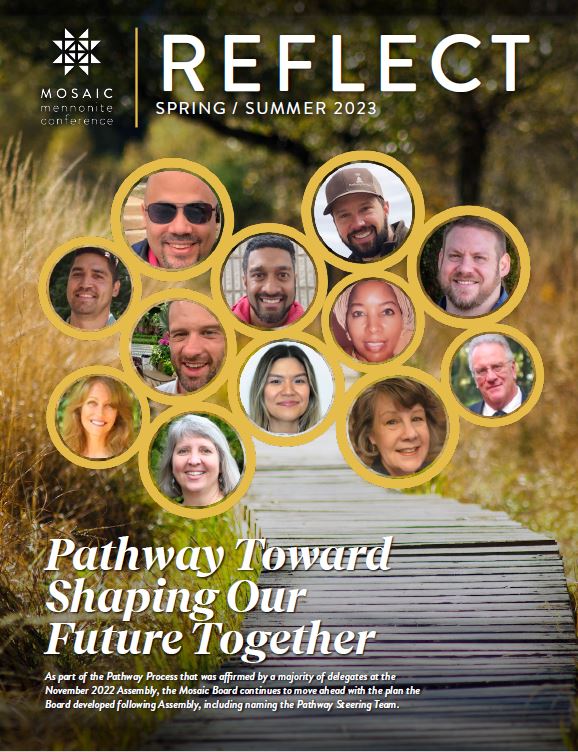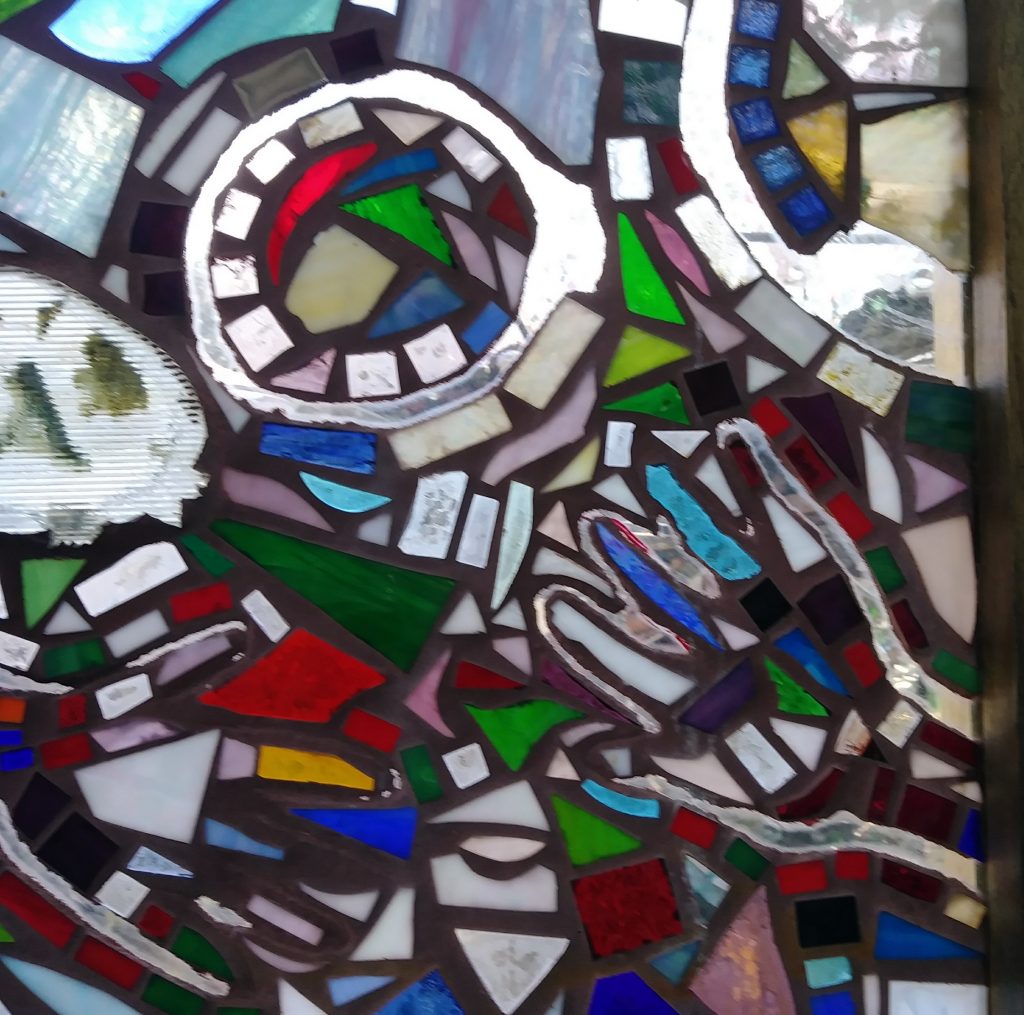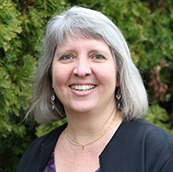To the siblings of Mosaic Mennonite Conference,
As Mosaic Conference, we are a community shaped by the forces of migration, from our colonial-era beginnings until now. We remember the stories of our migrations and movement alongside the Biblical call to care for our neighbor and the stranger. We acknowledge the words of Moses, “You too were strangers in Egypt.”
Many among us are living with fear right now. Some of our leaders, members, and neighbors face daily uncertainty about their safety, their families, and their future. Others carry the weight of walking closely with those who are afraid while trying to steady their own hearts. God’s mercy is near to all of us who are anxious, grieving, and weary.
Numerous members of our communities have already been detained or deported. Some members and leaders of Mosaic have self-deported, or plan to do so, rather than face the uncertainty and violence of current immigration enforcement.
Many of us who have lived in this land for generations descend from immigrants who didn’t file government paperwork upon arrival. We remember the complexity of those stories and seek to respond in our own time with both integrity and grace.
We grieve the loss of all those who been killed at the hands of ICE, including at least eight persons since the beginning of 2026. We also hold in prayer those in detention, those considering leaving the country, and those accompanying loved ones in impossible decisions.
As congregational and community leaders, we know you are often carrying heavy pastoral burdens. You are not alone in this time. Christ is present with you, and we are committed to walking together as a conference.
While we respect the government’s civil authority and seek to live peaceably, we believe that Jesus’ call to care for our neighbors doesn’t require a status check. As followers of the Prince of Peace, we reject violence and dehumanization in all forms. We acknowledge our obedience to Christ may at times conflict with the demands of government. We believe God calls us to confess that Jesus is Lord, which means Caesar is not.
We recognize that this current wave of enforcement echoes earlier eras of fear and control, from slave-catching patrols that terrorized African American communities to the anti-immigrant backlashes that met earlier waves of newcomers who reshaped U.S. identity.
We commit to ongoing support of recent immigrant communities within Mosaic as we struggle together through this time. We commit to lives of conscience that honor the humanity of all people, regardless of documentation status. We will also keep telling the truth about the historic and present harm done to Black, brown, and Indigenous communities, because truth-telling is part of our commitment to the work of reconciliation.
A recent grant from the Showalter Foundation is helping resource congregations that are navigating immigration-related concerns. Please reach out to immigration@MosaicMennonites.org so we can discern together how to best extend care and support.
As Mosaic Conference we are committed to becoming, loving, and living like Jesus in our broken and beautiful world. We invite you to remain in prayer as we together seek to respond to the prophet Micah’s question: “What does the Lord require of us but to live justly, love mercy, and walk humbly with our God?”
Stephen Kriss, Executive Minister
Marta Castillo, Associate Executive Minister
Roy Williams, Conference Moderator
Janet Panning, Assistant Moderator

